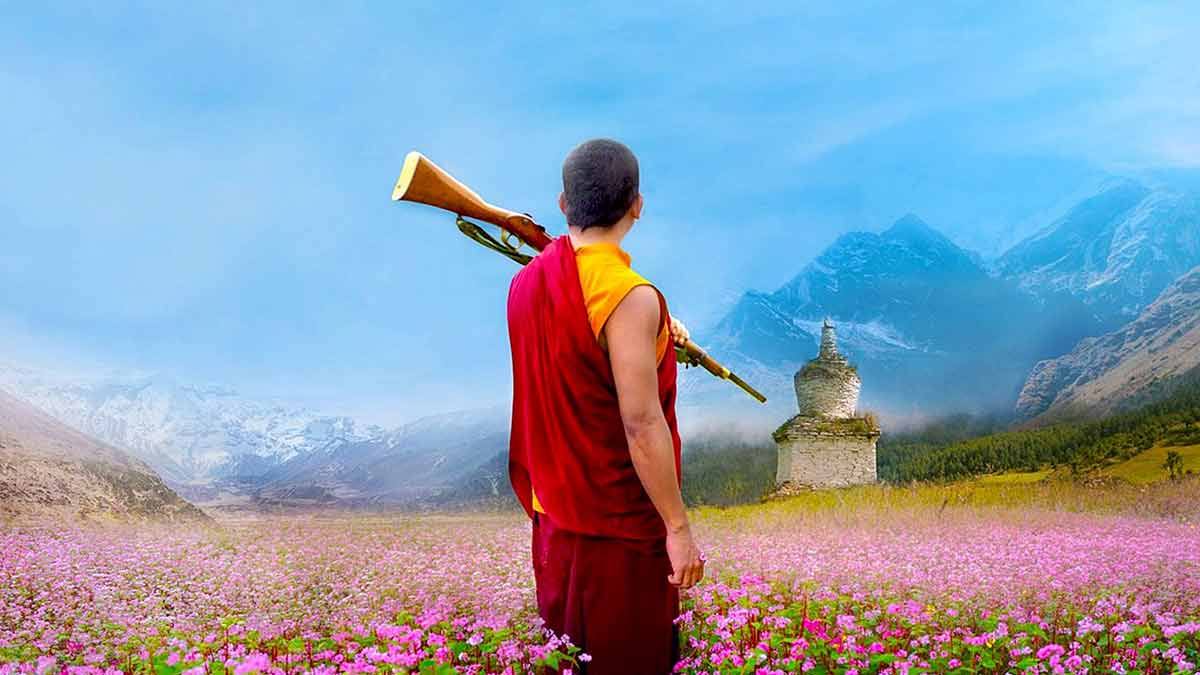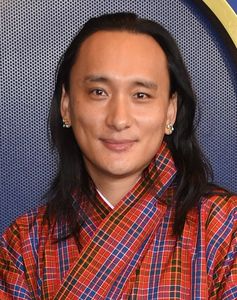When filmmaker Pawo Choyning Dorji decided to capture the delicate balance of values, tradition and modernity in Bhutan through his movie Lunana: A Yak in the Classroom (2019), he unwittingly put Bhutan on the global cinema map. The movie earned an Oscar nomination for best international feature film, a first for Bhutan. It shows the world’s remotest school in the Himalayan village of Lunana, which has six students and a nonchalant yak. A young woman brings the yak to the classroom to make the teacher, who is reluctant to serve at the remote location, understand the relationship the villagers has with the animal. Dorji uses it as an example to show how the Bhutanese venerate nature’s cyclic existence.
“We have made two films―one got an Oscar nomination and the other was shortlisted for nomination,” said Dorji. “You make this small film with solar batteries to power cameras, with 70 mules carrying the equipment and ration up to the remotest locations. Then you end up becoming an Oscar nominee. This itself is an amazing journey, right?”
Dorji’s desire to explore the tension between the old and the new has taken him to remote places in the sacred mountains to learn life lessons he could teach the country’s young population. “Bhutan is undergoing change with the migration of its youth. In order to control migration, countries need to have a strong sense of identity, culture, tradition and spirituality,” he said. Many Bhutanese children walk for hours to reach their schools. Every time Dorji walked back to his temporary shelter while shooting his film, he would see a tarpaulin tent on the deserted mountainside. “One day I peeped in and I saw an old lady cooking, and there was this little girl doing homework.” The lady told Dorji that she and her granddaughter were from another village which had no school. She wanted her granddaughter to get an education, so they lived in a tent.
The characters of the film, based on real people, helped Dorji create a buzz around issues close to his heart. “Our stories have mostly been passed down orally. But Bhutan is also a country where visual arts are closely tied to religious and cultural traditions,” he said. Lunana means dark valley in Dzongkha, Bhutan’s official language. “At the end of the movie, we realise through the protagonists’ experience that one can only appreciate the beauty of light by experiencing the beauty of shadow and darkness.”
Dorji’s contribution has been key to Bhutan’s embrace of modern education while preserving its rural traditions as he does not stop exploring the complex realities of his country grappling with modernisation. His second film, The Monk and the Gun, takes this exploration further to explain Bhutan’s transition to democracy through the story of a person who refuses money for his antique rifle, preferring to gift it to a monk. Western producers could not accept the story of giving the gun away for free. It was then Dorji realised that he had to make the film. “Because these are the values of the Bhutanese. In our culture, sometimes you give without expecting anything tangible in return, maybe just a blessing or good karma,” he said.
While change in Bhutan is inevitable, Dorji said the difference was in the way the transition was brought about. And he is confident that Bhutan’s stories are worth telling because the world has started listening.



